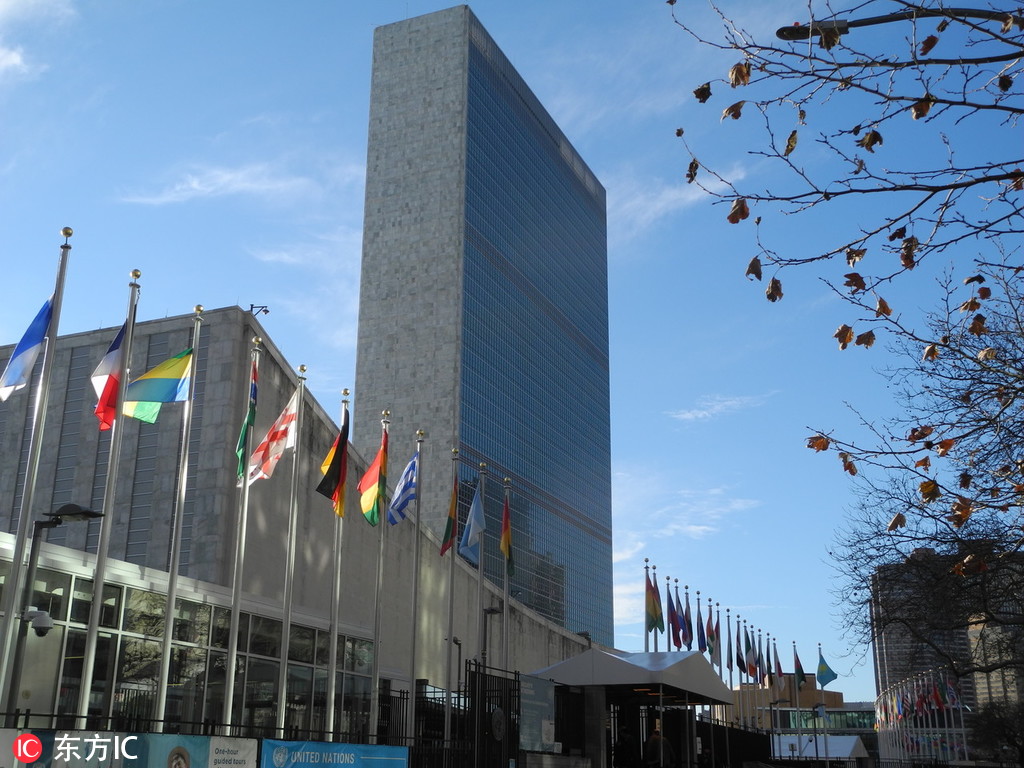Global South calls for faith in multilateralism
By MINLU ZHANG in New York | China Daily Global | Updated: 2022-10-18 09:41

Multilateralism has been a leading concept at the 77th session of the United Nations General Assembly, where it has been called for by many leaders of countries in the Global South.
Many people in developing countries believe wealthier nations operate according to self interest over regard for the most vulnerable when it comes to such issues as the COVID-19 pandemic and climate change.
"The global economy is now a house on fire, yet we continue to use evacuation methods that rush some nations out to safety while leaving the rest of us behind to fend for ourselves in the burning building," Malawi's President Lazarus Chakwera said at the General Assembly.
"But if we are truly one UN family, then leaving no one behind has to be practiced, not just preached."
Today, the combined forces of global change and the COVID-19 pandemic have taken the world into a period of fluidity and transformation. Threats and challenges with worldwide implications continue to emerge.
"Unilateralism, protectionism and hegemonism are reasserting themselves, and nontraditional security threats involving public health, terrorism, climate change and cybersecurity are rising. Instability and uncertainties are mounting in the world," said a position paper China authored for the General Assembly that was published in September.
Tanzanian Vice-President Philip Isdor Mpango told the General Assembly that "unilateralism driven by greed is leading us — rich and poor, strong and weak — to a catastrophe".
According to the UN, vaccine inequity will have a lasting impact on socioeconomic recovery in low- and lower-middle-income countries.
"The richer nations immediately received vaccines at the expense of the have-nots," the Philippines' President Ferdinand Marcos Jr said at the General Assembly.
"COVID-19 has been a case of survival of the richest. For most of this pandemic, big pharmaceutical companies left people in developing countries to die without vaccines and treatments while they sold doses to rich governments in the Global North," Maaza Seyoum, Global South convener of the People's Vaccine Alliance, said in a news release by Oxfam in September.
If rich nations believe the pandemic is over in their countries, they should help lower-income countries reach that point, too, World Health Organization senior adviser Bruce Aylward told Reuters in September, warning that richer nations must not step back from tackling COVID-19 as a global problem now, ahead of potential future waves of infection.
Developing countries' leaders have also been urging wealthier countries to do more to address climate change and take more responsibility for the fact that they have produced the most carbon emissions.
"Countries like Pakistan — we are one of the smallest emitters of carbon," Pakistan's Permanent Representative to the UN Munir Akram told China Daily in August.
"We have contributed almost nothing to global warming. But we are the fifth-largest victim of climate change. And the droughts, floods, melting of the glaciers … all of these are contributing factors to the disaster we are facing in Pakistan today in the shape of floods."
Pakistan sustained the worst floods in the country's history this year, killing 1,700 people, including 632 children, according to data Pakistan's National Disaster Management Authority published this month.
Singaporean Foreign Minister Vivian Balakrishnan said at the General Assembly that Singapore believes that the only way forward is to uphold the inclusive and rules-based multilateral system that has guaranteed peace and progress for all of humankind since World War II.
"No one is safe until all of us are safe," he said.
"This applies to pandemics but also to climate change, the conservation of the oceans and many other shared challenges."
Don Pramudwinai, Thailand's deputy prime minister and minister of foreign affairs, said that Thailand believes that the multilateral system plays a vital role in tackling new challenges, such as digital technology and the use of outer space, and in advocating for an equitable global financial system.
China has been calling on the international community to practice true multilateralism.
"The world needs true multilateralism. Multilateralism is a cornerstone of the existing international order and an effective path to upholding peace and promoting development," according to the position paper that China published for the General Assembly.
"We need to oppose the attempt to seek exclusive bloc politics under the disguise of multilateralism or to impose the rules made by a few countries on the wider international community under the pretext of multilateralism. We must reject the moves to use multilateralism as an ideological tool to build alliances of values targeting certain countries," the paper said.
























